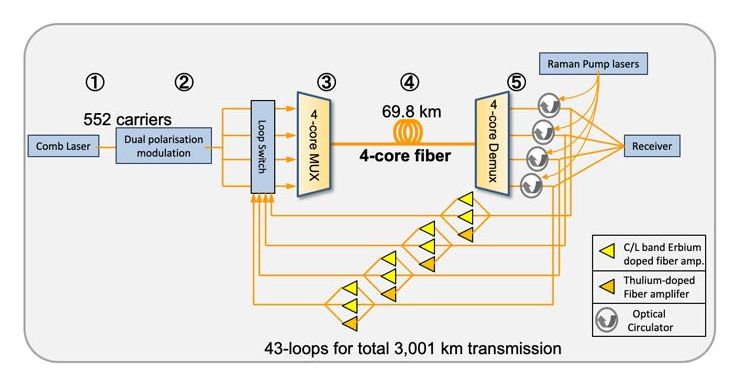
The basic assumption, and it’s proven to be a good one, is that more people will want to send more stuff over the internet tomorrow, Tuesday, or in ten years. We may not know how many people or what stuff exactly, but growth has generally been a good guess.
To meet tomorrow’s demands, we have to start building a more capable internet today. And by we, I mean researchers in labs around the world. So it is that each year we’re duly notified of a new eye-watering, why-would-we-need-that speed record.
In August of last year, a University College London (UCL) team, set the top mark at 178 terabits per second. Now, a year later, researchers at Japan’s National Institute of Information and Communications Technology (NICT) say they’ve nearly doubled the record with speeds of 319 terabits per second.
















